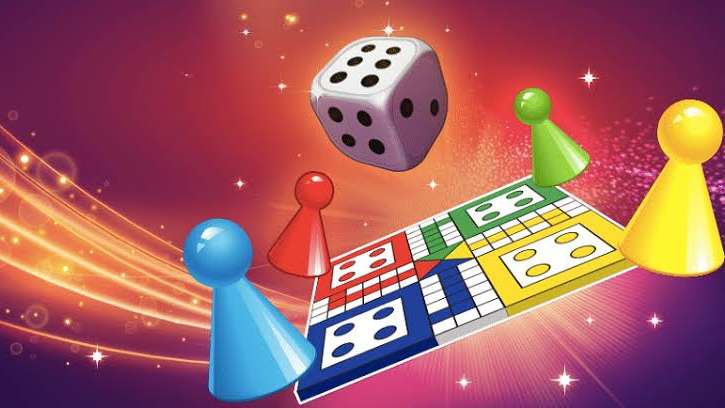
Among fun things to do, few are as good at making strong and friendly connections as playing Ludo. With its colorful path and rolling dice, this classic board game is a great way to build lasting friendships. Playing Ludo is more than just trying to win – it's about having fun together, working as a team, and enjoying the game. When people gather to play, their every move helps them become better friends. They laugh, share stories, and create memories beyond just the game. Joking around, trying to win, and celebrating victories and losses create a special bond. Playing on a Ludo online money app teaches people how to work together, be patient, and be kind, which helps them stay close even after the game ends. Let us explore the history of this board game and how it can bring people closer and help them form strong and lasting connections.
Table of Contents
The Long History of Ludo
Ludo's intriguing history can be traced back to antiquity, even finding mention in the epic Indian saga, the Mahabharata. It played a pivotal role in the fateful game between the Pandavas and Kauravas, ultimately leading to Draupadi's "cheerharan" and the consequential Kurukshetra war. Ludo's lineage can be linked to the ancient Indian game Pachisi, originating around the 6th century AD. Pachisi featured a cross-shaped board, dice, and pieces. Ludo's presence persisted through the Mughal era under the patronage of Emperor Akbar. Adding his unique flair, Akbar used live subjects from his harem as pieces on a life-sized board, a departure from the traditional seeds or shells. As the Indian subcontinent engaged in cross-cultural exchanges and trade, Pachisi transcended borders. In the 19th century, a simpler adaptation emerged in England, rebranded as "Ludo," derived from the Latin "ludus," meaning "game" or "play." The British version featured a square board with a cross pattern, guiding players' four pieces from start to finish based on dice rolls. The 20th century witnessed Ludo's evolution, marked by patented iterations across various countries. In 1907, Alfred Collier's English patent propelled Ludo's modernized form into popularity. The game's straightforward mechanics welcomed a broad audience. Over time, Ludo's influence crossed oceans and continents, appearing as "Parcheesi" in the United States and becoming a household name, particularly in the mid-20th century. Parcheesi's rules closely paralleled those of Ludo and Pachisi. Embracing the digital age, Ludo seamlessly entered the virtual domain. Electronic renditions emerged, promptly gaining prominence in video game consoles and computers, further widening its reach.
How Ludo makes long-lasting bonds?
Forming lasting and friendly relationships through a game of Ludo is a delightful process that brings people closer together. These things happen because Ludo isn't just a game – it's a way for people to connect, have fun, and build special bonds. Let's break down how this happens:
- Playing together
When people gather to play Ludo, they spend time together doing something they enjoy. This shared activity lays the foundation for building connections. Whether using a physical board or an app, you will make friends on the way. These days, apps offer an exceptional feature where you can create a private room and invite known players to play this board game.
- Sharing lighter moments
Ludo games often come with moments of laughter and joy. Whether it's a lucky dice roll or a funny comment, these moments create positive memories that people remember and cherish. The more you play, the more you enjoy this board game. The simplicity of the rules makes this game more interesting. Share enjoyable moments and recall them to make your friendship stronger.
- Friendly Competition Anywhere, Anytime
While Ludo is competitive, it's about more than winning at all costs. Players compete in a friendly way, focusing on having a good time rather than just being the winner.
- Teamwork and Strategy
Ludo can be played in teams, encouraging players to work together and strategize. This teamwork strengthens the bond among teammates.
- Being Patient and Kind
Sometimes, the dice don't roll in your favor. Playing Ludo teaches patience and kindness as players wait for their turn and support each other through ups and downs.
- Sharing Successes
When a player's piece reaches the finish line, it's a reason to celebrate. Other players cheer, creating a positive and encouraging atmosphere.
- Welcoming others
Ludo is easy to learn so anyone can join in the fun. This inclusivity brings people of different ages and backgrounds together. Ludo's relaxed pace allows players to talk and get to know each other better. Sharing stories, experiences, and thoughts deepens the connections.
- Sharing Emotions and Understanding each other
The excitement of a close game, the anticipation of a good roll, and the happiness of winning create shared emotions that connect players. Playing Ludo, you understand how others feel when they win or lose. This empathy carries over into real life, making relationships stronger.
- Playing regularly and Creating Memories
When friends or family play Ludo often, it becomes a unique tradition. This tradition nurtures relationships and gives everyone something to look forward to. This game becomes stories to remember and talk about later. These shared memories deepen the bonds formed during the games.
- Building Trust
When playing Ludo, players follow the rules and trust each other. This game helps to build trust and respect that can extend beyond the competition. The multiplayer mode of this board game builds trust between two players. Planning how to give selective moves to win against opponents builds trust.
- Relaxing together
Ludo provides a relaxing environment where people can let loose and be themselves. This comfort helps friendships grow. Thus, playing this board game online is no less than a vacation for your mind. After a long day, connect with your fellow players to enjoy a thrilling board game to relax and revive your mind.
Final Words
A Ludo game isn't just about moving pieces on a board – it's about connecting hearts and building lasting friendships. From sharing laughter and celebrating victories to understanding each other's feelings, Ludo creates a space where people can bond over something simple yet meaningful. So the next time you play Ludo, remember that you're not just rolling dice – you're rolling your way into stronger, friendlier relationships that can last a lifetime.



Leave a Reply